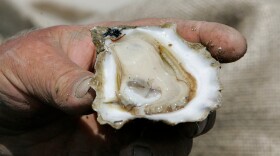-
A federal judge refused to dismiss most of a First Amendment lawsuit filed by a former Florida Fish and Wildlife Conservation Commission biologist who was fired because of a social-media post after the murder of conservative leader Charlie Kirk.
-
North Florida's Apalachicola Bay will soon reopen for wild oyster harvesting. It is a move that supporters hope will breathe life into one of the state's last historic working waterfronts. The Florida Fish and Wildlife Conservation Commission approved the plan Wednesday to reopen the bay for a limited oyster season beginning Jan. 1, 2026.
-
Although the odds indicate regulators will approve the first black bear hunt in a decade in Florida, opponents will pull out all the rhetorical stops when the Florida Fish and Wildlife Conservation Commission (FWC) gathers this week in North Florida for a final vote.
-
The remains of two, sibling, 3.5 month-old, female Florida panther kittens were found Sunday on Davis Blvd. in Collier County, said FWC officials, who believe both died following a vehicle collision.
-
Dozens of shorebird roosts are quickly disappearing as rising sea levels reshape Florida’s Nature Coast. Artificial reefs and conservation purchases, undertaken to save the region’s oyster industry, offer a glimmer of hope for oystercatchers.
-
More than half of Florida manatees rely on power plants to survive. That’s a problem for addressing climate change.
-
New state guidelines to protect endangered beach-nesting birds will not take effect until this time next year. Originally those guidelines. applauded by bird advocates. were slated to start last month, but The Florida Fish and Wildlife Conservation Commission delayed its effective date.
-
A Florida bill to increase penalties over releasing or selling venomous reptiles now exempts nativesThe FWC wrote the measure's language, announced it as a legislative initiative, and lobbied for it right before they announced Operation Viper, in which the agency busted people who were allegedly illegally selling venomous snakes.
-
There are more boats on Florida’s waters, more inexperienced captains, and more people living in the state than ever before. Add to that mix new boat owners, most without enough education and training, and the results are proving deadly.
-
The Florida Fish and Wildlife Conservation Commission is extending most of the provisions of an executive order that conservationists say favors development over gopher tortoises.
-
Florida wildlife authorities say the number of manatee deaths in the state has nudged higher with recent cold weather.
-
The state wants to make boaters in the Keys anchored out "on the hook" move to regulated mooring fields or move every three months. Some boaters say that would sink one of the last affordable ways to live in the expensive island chain.
Play Live Radio
Next Up:
0:00
0:00
Available On Air Stations











